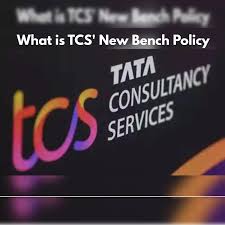Understanding TCS Bench Policy and Employee Concerns

Introduction
The Tata Consultancy Services (TCS) has become one of India’s leading IT services and consulting companies, employing over 500,000 individuals globally. However, recent discussions around TCS’s bench policy have surfaced, raising concerns among employees regarding job security and professional development. This topic is particularly relevant as it impacts the morale and future prospects of a significant segment of the workforce.
The TCS Bench Policy Explained
The bench policy at TCS refers to the practice of placing employees on a ‘bench’ when they are not assigned to a specific project. This practice allows the company to maintain operational flexibility and manage workforce capacity effectively. On the surface, the policy seems beneficial for the company’s agility, especially in the fluctuating IT industry. However, many employees find themselves anxious about being on the bench for prolonged periods, which raises several concerns about job security and career growth.
Employee Concerns
Recent reports have highlighted that employees on the bench often feel anxious and undervalued, fearing that extended periods without work may lead to potential layoffs or permanent status changes. Additionally, being on the bench can hinder skill development opportunities, as employees may miss out on important projects that contribute to professional growth.
Furthermore, some employees have expressed concerns about the lack of communication regarding their status and future within the company. Without clear guidelines and timelines on how long employees may remain on the bench and potential opportunities to transition back to active projects, anxiety around job security remains rampant.
Management’s Response
In response to employee concerns, TCS management has emphasized their commitment to transparent communication and support for all team members during transitional periods. They have pointed to initiatives aimed at reskilling and upskilling employees while they are on the bench, providing opportunities to learn new technologies and methodologies. In recent town hall meetings, TCS officials made assurances that the bench policy is a strategic approach designed for both the company’s and employees’ long-term benefits.
Conclusion
The TCS bench policy raises critical issues regarding employee welfare, job security, and career progression. As the IT landscape evolves rapidly, maintaining a balance between operational demands and employee concerns is crucial. For TCS to retain its reputation as a preferred employer, addressing these concerns through enhanced communication and career development opportunities will be key. Looking ahead, employee satisfaction and engagement will be vital for TCS’s continued success in navigating an increasingly competitive market.









